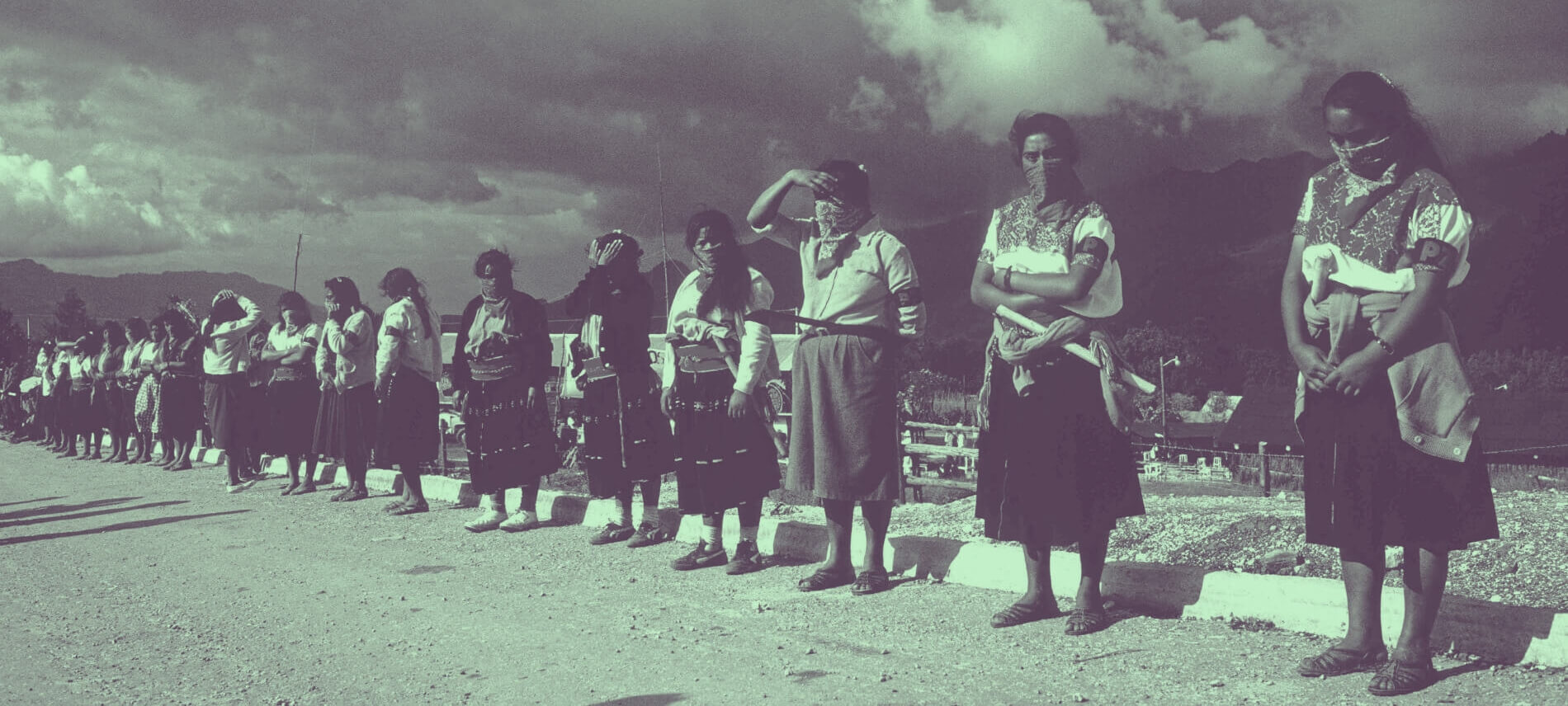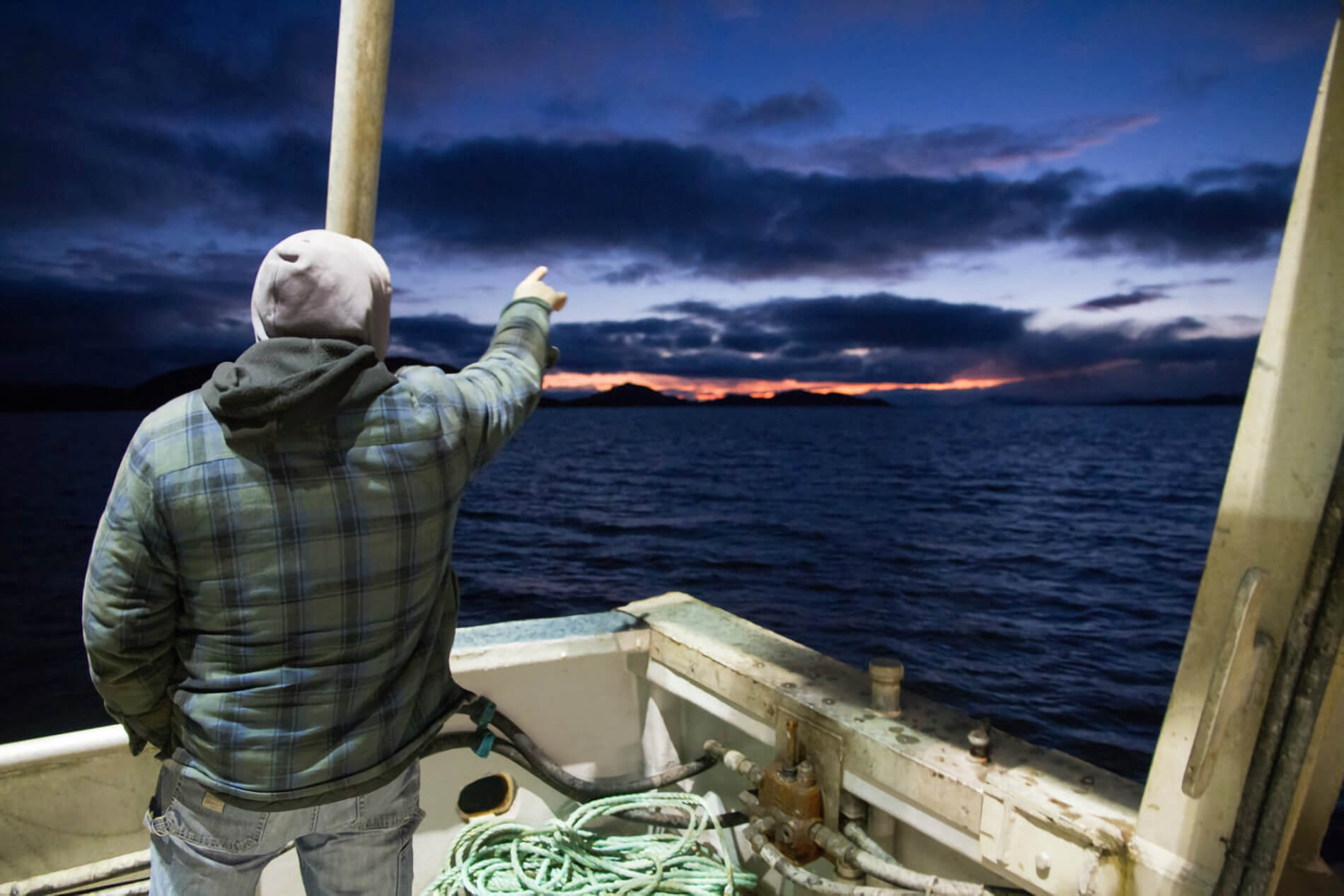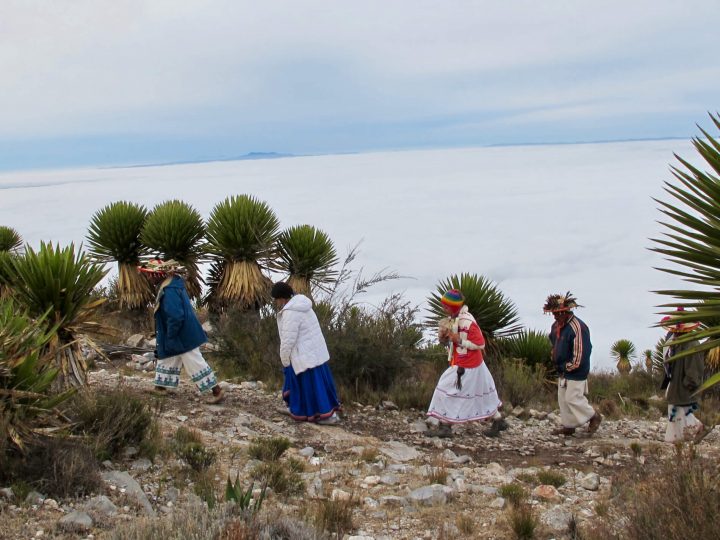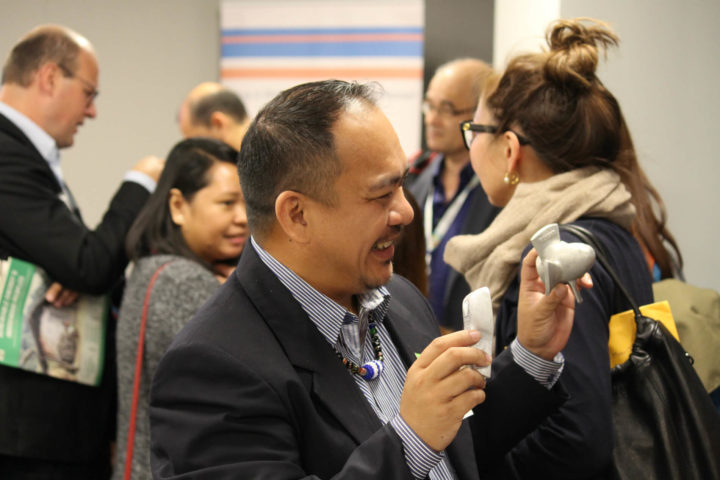
The Indigenous Rights Report is a weekly crash course on everything in the indigenous world.
Make this podcast happen! Support us on Patreon!

In this week’s Indigenous Rights Report:
- US District Judge tosses Nicholas Sandmann’s $250 million defamation lawsuit
- All schools in Yucatán will now teach students to speak Maya;
- Wixárika say they will not stop protecting their territory;
- Oklahoma Senator Jim Inhofe told media that Fort Sill will not be reopened as a concentration camp;
- US presidential candidate introduces People First Indigenous Communities Platform;
- A Tribe in northern Wisconsin sues to force Line 5 shutdown;
- Indigenous communities in Sarawak are resolving energy poverty–on their own terms;
- Germany freezes funding to WWF following human rights abuse in Congo;
- Guarani claim the global market for stevia use;
- Draft text of Equator Principles 4 released for consultation;
- “You’re lying”: Eight-year-old girl to Liberal Minister over indigenous water crisis;
- Clash between armed guards and indigenous Pygmies at gorilla sanctuary leaves one dead;
- An indigenous way to save soil makes a comeback;
- There is a fight to save Indonesia’s threatened Indigenous languages;
- N.Y.C. is consulting with Quebec’s Indigenous Peoples before inking hydro deal;
- Inuit ask premier to halt imminent flooding of Muskrat Falls;
- North Dakota’s first solar farm opens on Standing Rock tribal land;
- Venezuela’s gold rush is poisoning indigenous people and ruining communities;
- Indigenous body bats for rights of Indigenous people;
- Indigenous Persons Task Force starts work;
- Tasmania’s Aboriginal groups divided over new place naming policy;
- New Bering Sea management plan to incorporate local and traditional knowledge;
- New study shows that one in five Aboriginal births are not registered in Australia
Nicholas Sandmann’s $250 million defamation lawsuit against the Washington Post was dismissed Friday. Attorneys for the Kentucky student — who was filmed in January wearing a MAGA hat in a viral standoff with Native American activist Nathan Phillips in Washington, DC — asserted the newspaper’s coverage of the incident led to a “mob of bullies which attacked, vilified & threatened” Sandmann. US District Judge William Bertelsman tossed the suit, stating in his opinion that the paper was within its rights to publish Phillips’ views that the teen was deliberately blocking his path — even if that wasn’t the case.

Nicholas Sandmann standing extremely close to Nathan Phillips
“The Court accepts Sandmann’s statement that, when he was standing motionless in the confrontation with Philip’s his intent was to calm the situation and not to impede or block anyone,” Bertelsman wrote in a ruling. “However, Phillips did not see it that way. He concluded that he was being ‘blocked’ and not allowed to ‘retreat,’” the ruling read. “He passed these conclusions on to The Post. They may have been erroneous, but … they are opinion protected by the First Amendment. And The Post is not liable for publishing these opinions, for the reasons discussed in this Opinion.”
The Mexican state of Yucatán has introduced a new measure mandating that all schools throughout the state teach the Maya language, from elementary to university. “At this moment, our goal is that the Mayan language be taught in all primary, secondary, and preparatory schools and universities,” announced Fidencio Briceño Chel, a linguist of Maya origin and Director of the Yucatán State Center for Training, Research and Humanistic Dissemination. “The measure is meant to strengthen the cultural identity of the state,” says Briceño Chel.
Indigenous languages and peoples in Mexico face widespread discrimination. This initiative, spearheaded by Briceño Chel in cooperation with the Autonomous University of Yucatan and the Department of Higher Education, is part of an effort to preserve and promote indigenous culture, especially in schools.
On July 24, in the Mexican city of Tepic, traditional, civil and agrarian authorities of the Wixárika (Huichol) peoples issued a statement saying that they have “been summoned” this year for the second time, by a civil organization called “Union of Ejidos of the Chichimeca Region of the Northern Altiplano”, to “help in the resolution of Court Order 819/2011-VI” that the Wixárika people filed against the mining company First Majestic Silver Corp. That court order brought and end to the activity of the Canadian mining company’s operation in Wirikuta — at least until the dispute is resolved.

Participants in the historic mass pilgrimage to Wirikuta’s Cerro Quemado on Feb. 14-15, 2012, make their way to the xiriki, or house of the gods, at the top of the Cerro Quemado; a sea of clouds carpets the desert below as far as the eye can see. (Tracy L. Barnett photo)
The Wixárika statement reads in part, “Although the mining company and its allies have not stopped maneuvering and wish for the Wixarika people to desist from protection 819/2011-VI, we declare that we will not give up this protection since it is our legal bastion to protect the legacy that we must take care of for our people, and our rights to continue existing as original people, and to practice our ancestral spirituality.” For these and other reasons, the Wixarika say, they will not attend the meeting nor “acknowledge any agreement that is celebrated in said meeting.”
A spokesperson for Oklahoma Senator Jim Inhofe told media that Fort Sill will not be reopened as a concentration camp for those trying to cross the so-called “border.” This news comes less than a week after over 400 people came together in Lawton, OK and blocked the entrance to the military base demanding #NoCampsonStolenLand.
This action was organized by the Indigenous Environmental alongside many partners including: Dream Action Oklahoma, United We Dream, Black Lives Matter Oklahoma City, Democratic Socialists of America – Oklahoma City, Native Voice Network, Tsuru for Solidarity, Oklahoma Call for Reproductive Justice, ACLU OK, Women’s March OK, American Indian Movement Indian Territory, NACA-Inspired Schools Network, The Majority, Workers Defense, Bend the Arc, Sunflower Community Action, Center for Popular Democracy, Sunrise Movement, The International Union of Painters and Allied Trades, and others.
On July 25, Julián Castro became the first 2020 candidate to directly and comprehensively address the concerns of Indigenous peoples when he released a five-point plan, the People First Indigenous Communities platform. The platform leads with “Strengthening Tribal Sovereignty,” a call for the federal government to respect and uphold its treaties and responsibilities to the 500-plus sovereign nations that call the continent home.
Castro’s platform includes the creation of a White House Council on Indigenous Communities, the reinstitution of the annual White House Tribal Nations Conference, and support for many key issues in Indian Country including the need to (finally) provide full funding for the embattled Indian Health Service, to defend and uphold the Indian Child Welfare Act, and to end the leasing of federal lands for fossil fuel extraction. Castro also calls for the passage of the Carcieri fix, a long-overdue bill that would address issues surrounding the crucial land-into-trust process. His plan also features an entire section on combating the Missing and Murdered Indigenous Women crisis, which starts by underscoring the importance of the Violence Against Women Act and Savanna’s Act.
A tribe in northern Wisconsin is suing Enbridge Energy to try to force the closure of the Line 5 pipeline. Dylan Jennings, a council member of the Bad River Band of Lake Superior Chippewa, says the pipeline is an increasing threat to a fragile watershed. The lawsuit also says Enbridge’s easements through the tribe’s reservation have expired. The company says it has considered rerouting Line 5 around the reservation and remains open to that as a solution. The company says it has considered rerouting Line 5 around the reservation and remains open to that as a solution.
The state of Michigan is also suing Enbridge to try to get Line 5 shut down, and tribes near the straits of Mackinac have also come forward on their own term to demand the pipeline’s closure. “The continued operation of Line 5 presents an extraordinary, unreasonable threat to the public because of the very real risk of further anchor strikes, the inherent risks of pipeline operations, and the foreseeable, catastrophic effects if an oil spill occurs at the Straits,” Michigan Attorney General Dana Nessel said in a June statement. “We were extraordinarily lucky that we did not experience a complete rupture of Line 5 because, if we did, we would be cleaning up the Great Lakes and our shorelines for the rest of our lives, and the lives of our children as well.”
In Sarawak, Malaysia, energy poverty is being
resolved with indigenous solutions that also offer a way to fight the climate crisis. The people of Long Lawen refused to move to a resettlement camp when the Bakun mega-hydropower dam was built in the late 90s. Instead, the community moved to higher ground and resettled independently above the dam site. In 2000, Malaysian Senator Banie Lasimbang helped them build the first micro-hydro project in Malaysian Borneo. Long Lawen now has 66 ‘doors’ (essentially 66 separate apartments connected in about a dozen Escher-like longhouses), 88 families and 369 residents. Like most longhouses in Sarawak, the permanent residents tend to be the older generation who prefer the rainforest lifestyle. This is a way to keep tradition alive — through hunting, fishing and crafting non-timber forest products.

Newly appointed Malaysian Senator Banie Lasimbang with the penton wheels. Photo: Fiona McAlpine
In Sarawak, megadams have drowned hundreds of kilometres of rainforest in one of the world’s most vital carbon sinks. Worldwide, decomposing organic material at the bottom of reservoirs releases about a billion tons of methane a year. Claiming that mega-hydro systems are clean energy is greenwashing of the highest degree. And the human rights implications should be discouragement enough. As Baru Bian, Malaysia’s Minister for Works and indigenous land rights activist put it, “Any so-called clean energy policy that destroys primary forests is not clean. Neither are energy policies that displace indigenous communities. This is the simple truth”.
The German government has frozen funding to the World Wildlife Fund (WWF) following a series of investigations by Buzzfeed revealing that the charity funds, equips, and works directly with forces that have tortured, raped and killed people. The frozen funds were earmarked to go to the Salonga National Park in the Democratic Republic of Congo, where WWF had concealed evidence of gang rape and torture.
Investigations into WWF’s involvement in atrocities against Indigenous peoples are also underway in the US and UK. In the US, lawmakers on the House Committee on Natural Resources are looking into whether American taxpayer money has gone to forces that have committed human rights abuses. In the UK, the Charity Commission is investigating whether WWF’s UK branch conducts proper due diligence to ensure it does not financially support violence.
Guarani communities claim that companies like Coca Cola and Pepsi are using their ancestral knowledge without giving them compensation. Multiple international companies are taking advantage of the sweetening properties of stevia without recognizing that it is knowledge produced by the Guaraní peoples of Paraguay and Brazil. “The Guarani, who are the ones who discovered the sweetening characteristics of stevia, are not receiving their share of the benefits of the economic exploitation of their knowledge, as required by the Convention on Biological Diversity and the Nagoya Protocol,” said Laurent Gaberell, head of biodiversity and intellectual property of the Public Eye organization.
Coca Cola and Pepsi are not the only transnational companies that have taken advantage of the sweetening properties of stevia. Advised by civil organizations, the Guaraní communities have contacted various companies to reach a benefit-sharing agreement. One of the deals that would be close to closing would be with the Swiss multinational Nestlé.
The Draft text of Equator Principles 4 was released for consultation. Proposed changes include: responsibility to respect Human Rights in line with the United Nations Guiding Principles on Business and Human Rights (UNGPs); EPFIs’ role with respect to the 2015 Paris Agreement as well as efforts to improve the availability of climate-related information; supporting conservation including the aim of enhancing the evidence base for research and decisions relating to biodiversity.
The EPFIs have adopted the Equator Principles to serve as a common baseline and framework for financial institutions to identify, assess and manage environmental and social risks when financing projects.
Reports of “chemicals” infiltrating water surfaced in Attawapiskat, Ontario, about two weeks ago. There has been a massive outcry for the government to solve this crisis. However, Minister of Indigenous Services Seamus O’Regan hasn’t given this the attention it needs. When he did visit the reserve, an eight-year-old girl criticized the Liberal government’s lack of response to the emergency; when he said that “nobody wants you to suffer one more day”, she told him that he was lying.
For more than three decades, Attawapiskat has routinely struggled to gain access to clean and safe water and a host of other basic necessities including a school for their children and employment opportunities to curb the high rate of poverty. Some 53 percent of on-reserve children are currently living in poverty.
A violent confrontation between armed guards and an indigenous Batwa tribe at a national park in the Democratic Republic of the Congo has left one person dead and 14 others injured. The clash happened near the Kahuzi Biega park, one of the DRC’s leading tourist attractions and home to the last remaining wild population of Eastern lowland gorillas in the world.
There has been growing tension between the Batwa (referred to as “Pygmies” by international press) and park authorities in recent months. The Batwa are reportedly angry about being denied access to the national park, which is named after two extinct volcanoes lying within its 6,000 sq km range. Park rangers claim the Indigenous peoples have been illegally entering the boundaries of Kahuzi Biega since last year and carrying out deforestation.
Farmers in the Bangladesh village of Namapara have reintroduced a native technology of river training which had been forgotten. The technology is known as ‘bundaling’ among the people who live along the Brahmaputra river system. A ‘bundal’ is a complex, multilayered bamboo palisade that can protect the riverbank from flash floods, in the process increasing the navigability of the river. Bundaling also requires 10 times less funds than modern dredging methods require, as well as increasing navigability and helping to increase fertility of the agricultural lands.
Every year, Bangladesh’s economy gets badly affected due to river erosion. According to the Bangladesh Water Development Board, more than 250,000 people from 43 districts have lost their homes due to river erosion in the last 10 years. The government also spends a large amount of resources to protect the riverbanks. But as these conventional, fuel intensive methods are failing, it is high time for the government to think about alternative methods to reduce river erosion, like bundaling, which is a natural and ‘green’ way to protect the riverbank and dredge rivers.
Members of the Mentawai community in Indonesia are fighting to keep their language alive. The Yayasan Pendidikan Budaya Mentawai (YPBM), a cultural education foundation based on Siberut island, is currently collating a Mentawai dictionary, that will translate Mentawai into Bahasa Indonesia, which in turn will be translated into English. YPBM chairman, Fransiskus Yan, outlined that his organization considers the preservation of language paramount to ensure the future of Mentawai culture.
An estimated 90 percent of 6,700 languages spoken throughout the world today will disappear within the next 100 years and 40 percent — some 2,680 languages — are in immediate danger of becoming extinct, as their last fluent speakers grow older and pass away. The majority of these languages are in Asia, the world’s most linguistically diverse area. The United Nations has announced 2019 as the International Year of the Indigenous Language (IYIL), a campaign that seeks to raise awareness of the role languages play in First Nation communities and their ties to education, history, tradition, and memory.
New York City’s administration is consulting with Indigenous Peoples across Quebec before agreeing to any power deals with Hydro-Québec. This approach is long overdue for Bill Namagoose, executive director of the Cree Nation government, and Jean-Charles Piétacho, Quebec chief of the Innus of Ekuanitshit. Since last Monday, three experts from New York City’s administration have been criss-crossing the province talking to Indigenous communities about potential impacts that a deal between the United States’s largest city and Hydro-Québec could have on the ground.
In April, New York City Mayor Bill de Blasio said he was interested in starting negotiations with Hydro-Québec to achieve “zero-emission Canadian hydroelectricity” as part of his commitment to fighting climate change.
Inuit leadership in Labrador is calling on the province to halt the flooding of the Muskrat Falls hydro project reservoir until concerns around mercury contamination of fish and traditional foods are addressed. On Monday, Nunatsiavut Government President Johannes Lampe issued a statement asking Newfoundland and Labrador Premier Dwight Ball to direct crown corporation Nalcor Energy to delay flooding the controversial dam’s reservoir until mitigation measures recommended by experts are implemented.

Muskrat Falls Dam. Photo: Make Muskrat Right on facebook
Muskrat Falls has been contested by Innu and Inuit in Central Labrador. While the Innu Nation, which represents the two Innu First Nations in Labrador, has signed agreements with the federal and provincial governments permitting the project to proceed, the province’s two Inuit groups have opposed Muskrat Falls in the courts and on the ground. Nalcor has stated that it intends to begin flooding on August 7.
The Standing Rock Sioux tribal members celebrated the opening of North Dakota’s first solar farm, which is located on the tribal reservation. The CannonBall Community Solar Farm adds 300 kilowatts into the grid, which brings the tribe one step closer to ending its dependence on fossil fuels, which are driving the climate crisis. In 2016, the Standing Rock Sioux Tribe launched a battle against an oil pipeline running across their ancestral lands. The solar farm will save the community $7,000 to $10,000 annually in energy costs. This money will go back into the community with the hopes of creating a scholarship program to help protect their native Lakota language, said Hayes Baynard, the CEO of GivePower, one of the nonprofits that is partnering on the project and invested $370,000 in it.
Interest in renewable energy has been growing across Native American communities in the U.S. The Navajo Nation, which is dealing with the closure of a coal plant that fueled much of its income, has set its eyes on solar instead.
Forty-three organizations fighting climate change from across 24 countries said the Indian government should vigorously defend the Forest Rights Act in court. A statement issued said that the government must ensure the legal and policy changes strengthen the rights of locals and indigenous communities rather than weaken them. This comes ahead of the Supreme Court’s hearing on eviction of tribals in the country. The groups said the protection of local communities’ rights over forests and land was a crucial weapon in the fight against climate change.
The Forest Rights Act attempts to reverse historical injustices and tries to recognize the rights of local, indigenous and forest dwelling communities, said Campaign for Survival and Dignity, an umbrella group which advocates for forest rights.
With the collapse of Venezuela’s state-run oil industry, Nicolás Maduro’s regime has found a new cash cow: gold. With the complicity of Venezuelan law enforcement, the environmentally protected Yapacana park is being destroyed by illegal gold mining. In addition, dredges plow the rivers around the park and toxic mercury is poisoning the regional water supply.
A 2017 study found that communities living along Colombia’s Atabapo, Guainía and Inírida rivers, near the Venezuelan mines, had about 60 times the maximum safe level of mercury recommended by the World Health Organization. Those three rivers provide much of the water for populations of southern Colombia, Venezuela, and northern Brazil. The allure of gold is also tearing apart traditional community life. Domestic violence caused by alcohol abuse is on the rise, as is malaria, which is rampant in the mines and has become an epidemic in these communities. As the mining frontier expands, the survival of indigenous culture is under threat, said Plinio Yavinape, an indigenous elder living close to Puerto Inírida. Large areas of jungle in the southeastern Colombian Amazon have also functioned as a trafficking corridor for drugs, weapons, troops, and commodities for decades.
Gov. Mark Gordon’s task force to address the high rates of missing and murdered Indigenous people met for the first time Wednesday in Cheyenne. The meeting marked the Wyoming state government’s first institutional step to take on the issue. Similar to a task force on human trafficking created several years ago, the Missing and Murdered Indigenous Persons Task Force aims to understand an issue that has gained more attention but, to this point, has gone unaddressed. Gordon announced the creation of the task force after Grey Bull challenged him to address the problem at an awareness event this spring.
The panelists, who included state lawmakers, tribal leaders, advocates and journalists, also talked about missing and murdered Indigenous people and how women can lead the charge in addressing issues in Indian Country.
A revised policy released by the government of Australia last month means more Aboriginal groups in the state will now have a say in how to name the features around them. Tasmanian Aboriginal activists have praised the state government’s move to “reset” its relationship with the island’s indigenous population, saying it could serve as a template for government policy nationwide. About 13 traditional languages are still taught to children in Australia today, while elders speak another 100 that are at risk of extinction when those language holders pass away. But critics say the revised policy will complicate an already difficult and delicate process and will end up pitting groups against each other as they disagree over which language to use.
Program coordinator Annie Reynolds at the Tasmanian Aboriginal Centre (TAC), the federally-funded organization that has been leading the revival of the palawa kani language, said the policy will hinder the naming process. She explained that combination of vocabularies from various languages is the best way to honor all of Tasmania’s original tongues.
For the first time in its more than forty-year history, the North Pacific Fishery Management Council (NPFMC) will incorporate Traditional Knowledge from local communities into its core management plans for the Bering Sea region. Many believe Local and Traditional Knowledge will help the council better manage the complex ecosystem and bring new light to regional issues—such as the changing climate.
The Council is calling for nominations for the Task Force on Traditional Knowledge through July 31st. They are looking to include representatives from Alaska Native Organizations/Tribes, Bering Sea communities, Bering Sea fisheries, and researchers who are experienced in Traditional Knowledge and subsistence issues.
A Western Australian study showed that an astounding one in five Aboriginal births were not registered. The Queensland ombudsman report identified that cross-agency strategies were likely to be needed to improve Aboriginal and Torres Strait Islander birth registration. Any attempts to better engage new Aboriginal mothers in the birth registration process need to go beyond mere education about the benefits of registration. Thought also needs to be given to how to heal and overcome the historical traumas perpetrated against Aboriginal mothers and families accessing health services.
There are potential opportunities for birth registration processes to be embedded more deeply into healthcare services and postnatal care for Aboriginal mothers.
This is the Indigenous Rights Report.

Indigenous Peoples are putting their bodies on the line and it's our responsibility to make sure you know why. That takes time, expertise and resources - and we're up against a constant tide of misinformation and distorted coverage. By supporting IC you're empowering the kind of journalism we need, at the moment we need it most.